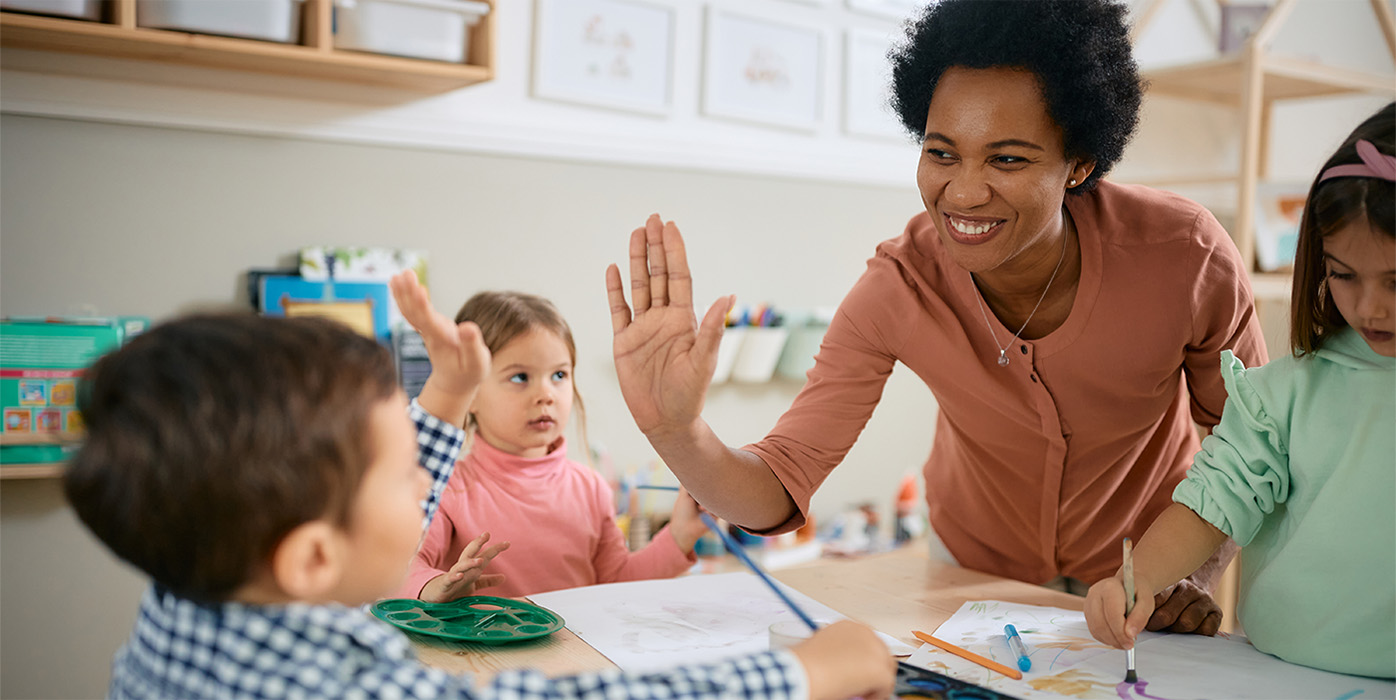ABOUT THIS PROJECT
The goal of Promoting Early Engagement, Relationships, and Socialization (PEERS) was to create a systematic guide to support teachers in organizing groupings of children during play time to support their language development. These groupings are designed to maximize language input from peers for children with delays in their language development.
Children with language delays tend to be excluded from the peer social networks in early intervention and early childhood special education (ECSE) classrooms, and have fewer interactions and friendships than typically developing children (Chen et al., 2020b; Chen, Lin, Justice, & Sawyer, 2017). This has long term effects on several areas including their language development and school liking. PEERS sought to disrupt these trends and foster language development for children with language delays through a peer-mediated intervention, where children complete intervention activities with the support of their teacher. PEERS used state of the art sensing technologies, embedded systems comprised of both hardware and software, to collect continuous proximity and language data on all children in the classroom throughout their day. These data allow us to gain a more accurate and holistic picture of children’s experiences and to investigate the effects of this peer-mediated intervention both at the individual child level and in the broader classroom social network.
– Funding –
PEERS was funded by the National Institute of Health in the U.S. Department of Health and Human Sciences.
– Timeline –
PEERS received funding from June 2020 through August 2023.
Meet the Team

Primary-Investigator

Co-Investigator

Co-Investigator

Co-Investigator

Research Scientist

Nan Xiao
Research Scientist

Project Director

Kaitlyn Bregman
Field Staff

Fatemah Shehab
Research Assistant

Justice Stoll
Research Assistant



